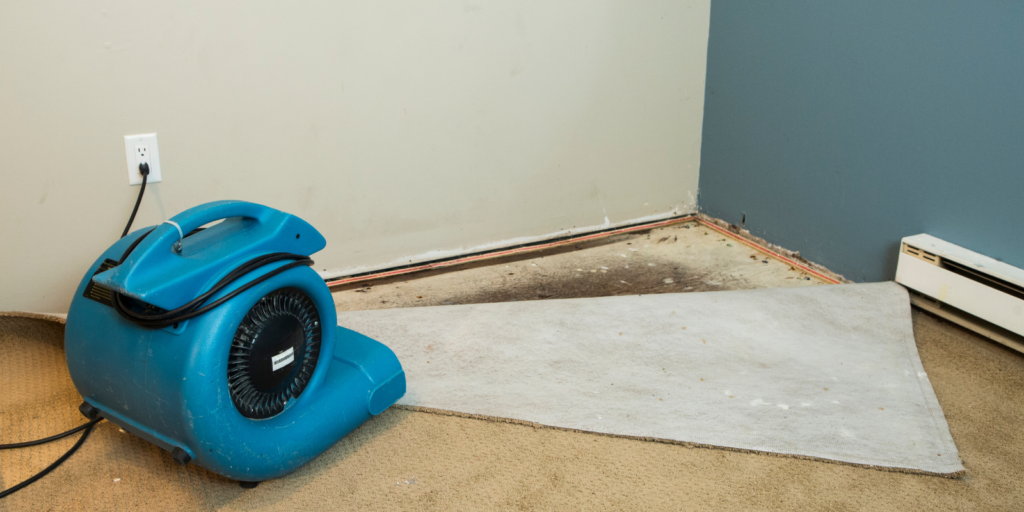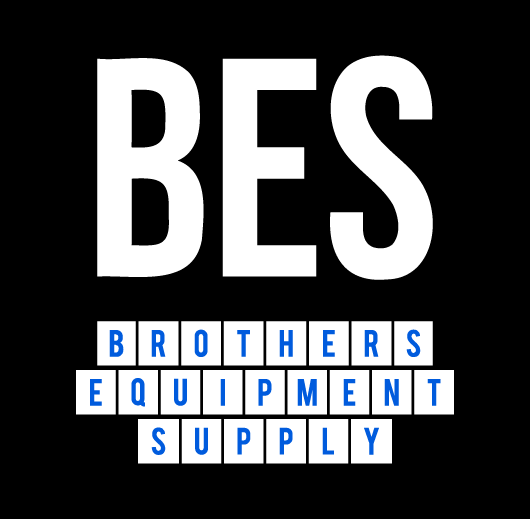![Common Uses For Commercial Dehumidifiers [Must-Know]](https://brothers-equipment.com/wp-content/uploads/2023/06/Untitled-design-2023-06-23T155633.979.png)
Common Uses For Commercial Dehumidifiers [Must-Know]
Commercial dehumidifiers play a crucial role in maintaining optimal humidity levels in various commercial settings.
These powerful devices are designed to remove excess moisture from the air, preventing issues such as mold growth, structural damage, and product deterioration.
In this article, we will explore the common uses for commercial dehumidifiers, and their benefits, and answer some frequently asked questions.
Let’s get right into it.
Table of Contents
- Understanding Commercial Dehumidifiers
- 1.1 How Do Commercial Dehumidifiers Work?
- 1.2 What Are the Key Features of Commercial Dehumidifiers?
- Applications of Commercial Dehumidifiers
- 2.1 Warehouses and Storage Facilities
- 2.2 Manufacturing and Production Facilities
- 2.3 Restaurants and Food Service Establishments
- 2.4 Gyms and Fitness Centers
- 2.5 Museums, Archives, and Libraries
- Benefits of Commercial Dehumidifiers
- 3.1 Mold Prevention
- 3.2 Preservation of Inventory and Equipment
- 3.3 Enhanced Indoor Air Quality
- 3.4 Improved Employee Comfort and Productivity
- FAQs (Frequently Asked Questions)
- 4.1 How often should the filters in a commercial dehumidifier be cleaned or replaced?
- 4.2 Are there any specific maintenance requirements for commercial dehumidifiers?
- 4.3 Can commercial dehumidifiers be used in outdoor settings?
- 4.4 What size of commercial dehumidifier do I need for my facility?
- 4.5 Are commercial dehumidifiers energy efficient?
- Conclusion
1. Understanding Commercial Dehumidifiers
1.1 How Do Commercial Dehumidifiers Work?
Commercial dehumidifiers use a refrigeration or desiccant-based system to extract moisture from the air.
In a refrigeration-based system, warm, humid air is drawn into the unit and passed over a cold coil.
As the air cools, the moisture condenses and collects in a reservoir while the drier air is reheated and released back into the environment.
Desiccant-based systems use moisture-absorbing materials to remove moisture from the air.
1.2 What Are the Key Features of Commercial Dehumidifiers?
Commercial dehumidifiers are designed to withstand heavy-duty use and offer various features to enhance performance. Key features include:
- High moisture removal capacity
- Adjustable humidity controls
- Automatic defrost function
- Condensate pump for continuous drainage
- Programmable timers and settings
- Remote monitoring and control options
- Durable construction for long-term use
2. Applications of Commercial Dehumidifiers

2.1 Warehouses and Storage Facilities
Warehouses and storage facilities often deal with high humidity levels due to the presence of moisture from incoming goods or inadequate ventilation.
Commercial dehumidifiers help maintain optimal humidity, preventing mold growth on stored products, equipment corrosion, and structural damage.
2.2 Manufacturing and Production Facilities
Manufacturing and production facilities can benefit from commercial dehumidifiers to control moisture levels during various processes.
Excessive moisture can affect product quality, compromise equipment performance, and lead to safety hazards. Dehumidifiers ensure a stable environment, improving production efficiency and product consistency.
2.3 Restaurants and Food Service Establishments
Restaurants and food service establishments face unique challenges with moisture generated from cooking, dishwashing, and refrigeration.
Excess humidity can result in mold, foul odors, and a breeding ground for bacteria. Commercial dehumidifiers help maintain a clean and hygienic environment while preserving food quality and extending shelf life.
2.4 Gyms and Fitness Centers
Gyms and fitness centers are prone to high humidity levels due to the perspiration of occupants and inadequate ventilation. Excessive moisture can lead to unpleasant odors, mold growth, and damage to gym equipment.
Commercial dehumidifiers create a comfortable and healthy environment, reducing the risk of respiratory issues and equipment deterioration.
2.5 Museums, Archives, and Libraries
Preserving valuable artifacts, documents, and books requires maintaining precise humidity levels. Fluctuations in humidity can cause irreversible damage to sensitive materials.
Commercial dehumidifiers help stabilize humidity, protecting cultural heritage and ensuring the longevity of valuable collections.
3. Benefits of Commercial Dehumidifiers
3.1 Mold Prevention
One of the primary benefits of commercial dehumidifiers is mold prevention. Mold thrives in moist environments and can cause structural damage, trigger allergies, and pose health risks. By reducing excess moisture, dehumidifiers inhibit mold growth, creating a safer and healthier environment.
3.2 Preservation of Inventory and Equipment
Commercial dehumidifiers help preserve inventory, equipment, and materials susceptible to moisture damage.
Excessive humidity can lead to rust, corrosion, warping, and degradation of sensitive items. By maintaining optimal humidity levels, dehumidifiers protect investments and extend the lifespan of assets.
3.3 Enhanced Indoor Air Quality
High humidity levels contribute to poor indoor air quality, leading to discomfort, musty odors, and respiratory issues.
Commercial dehumidifiers remove excess moisture, improving air quality and creating a more pleasant environment for employees, customers, and occupants.
3.4 Improved Employee Comfort and Productivity
Excessive humidity can make employees feel uncomfortable, leading to decreased productivity and motivation.
Commercial dehumidifiers help create a comfortable working environment by controlling moisture levels, allowing employees to focus on their tasks and perform at their best.
4. FAQs (Frequently Asked Questions)
4.1 How often should the filters in a commercial dehumidifier be cleaned or replaced?
The frequency of filter cleaning or replacement depends on factors such as usage, air quality, and the specific model of the dehumidifier.
It is generally recommended to clean or replace the filters every three to six months to maintain optimal performance.
4.2 Are there any specific maintenance requirements for commercial dehumidifiers?
Commercial dehumidifiers require regular maintenance to ensure optimal functionality. This may include cleaning the coils, emptying the condensate reservoir, checking and replacing filters, and inspecting the unit for any signs of damage.
Following the manufacturer’s guidelines and scheduling routine maintenance is essential.
4.3 Can commercial dehumidifiers be used in outdoor settings?
Most commercial dehumidifiers are designed for indoor use only. However, there are specific models available for outdoor applications, such as construction sites or temporary structures.
It’s important to check the specifications of the dehumidifier and consult with experts to determine its suitability for outdoor use.
4.4 What size of commercial dehumidifier do I need for my facility?
The size of the commercial dehumidifier required depends on factors such as the square footage of the facility, humidity levels, and the specific application. Consulting with professionals can help determine the appropriate size and capacity needed to effectively control moisture in your facility.
4.5 Are commercial dehumidifiers energy efficient?
Commercial dehumidifiers have varying energy efficiency levels depending on the model and features. Look for dehumidifiers with energy-saving options, such as programmable timers and humidity controls, to optimize energy usage.
Additionally, choosing ENERGY STAR-certified models can ensure higher efficiency and reduced energy consumption.
5. Conclusion
Commercial dehumidifiers are essential tools for controlling moisture levels in various applications. From warehouses to restaurants, gyms to museums, these devices offer numerous benefits, including mold prevention, preservation of inventory and equipment, enhanced air quality, and improved employee comfort.
Understanding the common applications and benefits of commercial dehumidifiers allows businesses to make informed decisions in protecting their assets and creating a healthier environment.
If you have any questions about our article, “Common Uses For Commercial Dehumidifiers [Must-Know]” or want to buy a commercial dehumidifier, please call 1-416-912-2205 or chat with us on LiveChat or social media.
